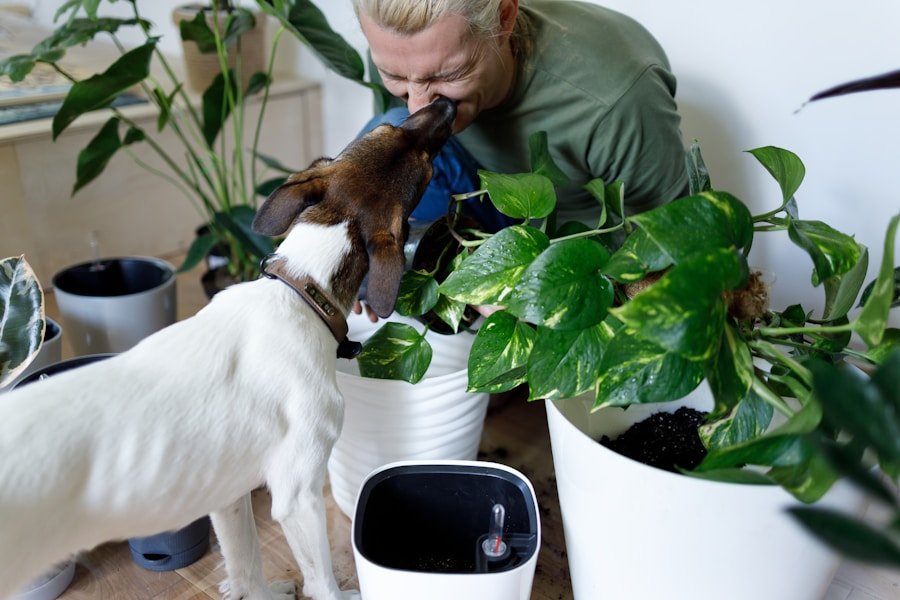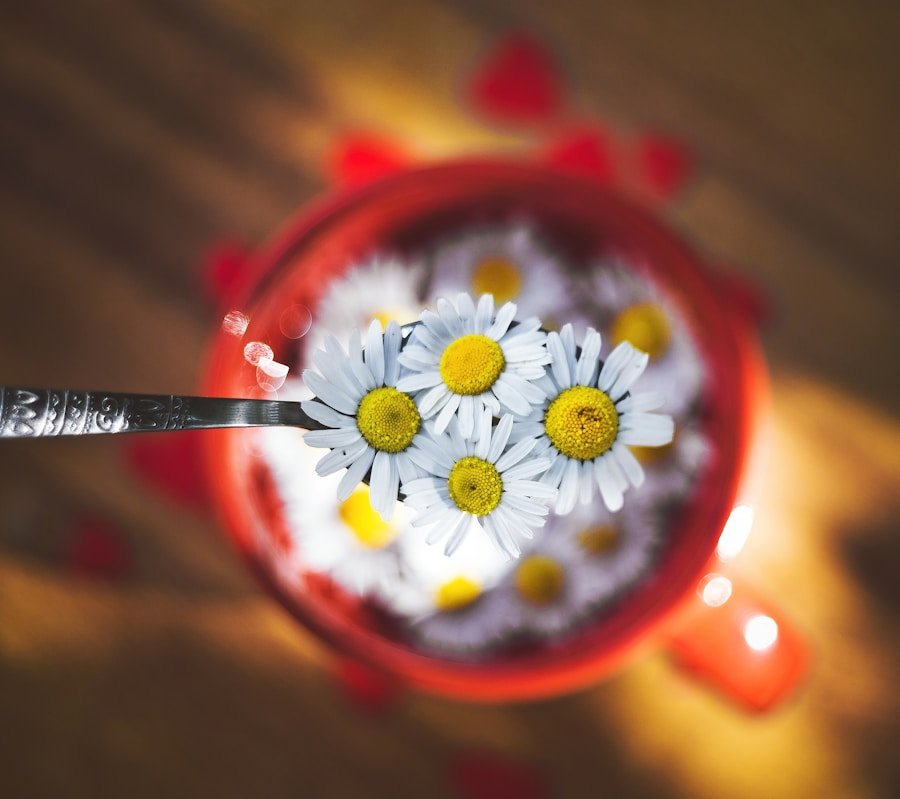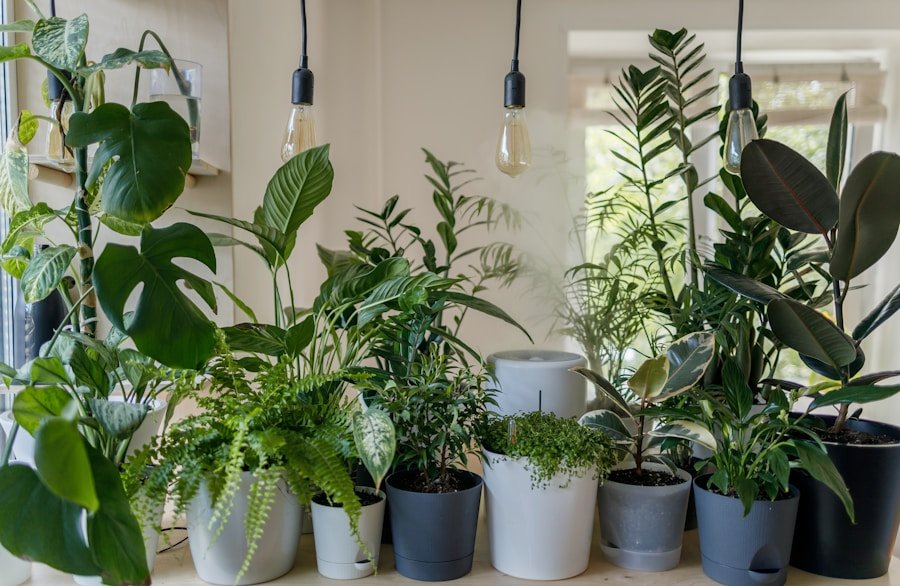Cultivating medicinal plants indoors offers a multitude of benefits for both physical and mental health. One of the primary advantages is the convenience of having fresh medicinal herbs readily available at all times. This allows for quick access to natural remedies for ailments such as headaches, as well as soothing teas for relaxation, thereby saving time and money.
Moreover, indoor cultivation ensures access to high-quality, organic herbs that are free from pesticides and other harmful chemicals. In addition to the health benefits, growing medicinal plants indoors can also be a therapeutic and fulfilling experience. Studies have shown that plant care can reduce stress and anxiety levels, while also improving indoor air quality.
Furthermore, a small indoor garden can add a touch of natural beauty to living spaces, creating a calming and peaceful atmosphere. Overall, cultivating medicinal plants indoors provides numerous health benefits while also enhancing the aesthetic appeal of one’s home.
Key Takeaways
- Growing medicinal plants indoors provides easy access to natural remedies and can save money on store-bought medications.
- Choosing the right medicinal plants for indoor growth depends on the space available, the amount of natural light, and the specific health benefits desired.
- Caring for medicinal plants indoors requires regular watering, proper drainage, and occasional pruning to promote healthy growth.
- Creating the ideal growing environment for medicinal plants involves providing adequate sunlight, humidity, and air circulation.
- Harvesting and using medicinal plants grown indoors should be done carefully to ensure maximum potency and effectiveness of the herbs.
Choosing the Right Medicinal Plants for Indoor Growth
Considering Space and Lighting
When selecting medicinal plants, it’s essential to consider the space and lighting available in your home. If you have limited natural light, opt for plants that thrive in low-light conditions, such as mint or lemon balm.
Health Benefits of Medicinal Plants
Each medicinal plant has unique health benefits, making it important to consider these benefits when making your selection. For example, aloe vera is known for its soothing properties and can be used to treat burns and skin irritations, while lavender is often used for its calming effects and can be made into a relaxing tea.
Access to Natural Remedies
By carefully selecting the right medicinal plants for indoor growth, you can ensure that you have access to a variety of natural remedies right in your own home. This allows you to take control of your health and wellness, using natural and effective solutions to address common ailments.
Tips for Caring for Medicinal Plants Indoors
Caring for medicinal plants indoors requires some specific attention and care to ensure that they thrive and remain healthy. One of the most important factors to consider is proper watering. Overwatering can lead to root rot, while underwatering can cause the plants to wilt and die.
It is important to research the specific watering needs of each plant and to monitor the moisture levels in the soil regularly. In addition to watering, it is also important to provide adequate light for your medicinal plants. Most herbs require at least six hours of sunlight per day, so it is important to place them in a sunny spot or supplement with artificial grow lights if necessary.
Furthermore, it is important to regularly prune and harvest your plants to encourage new growth and prevent them from becoming overcrowded. By following these care tips, you can ensure that your medicinal plants remain healthy and productive.
Creating the Ideal Growing Environment for Medicinal Plants
| Benefits of Growing Medicinal Plants Indoors | Care Tips for Growing Medicinal Plants Indoors |
|---|---|
| 1. Easy access to fresh medicinal herbs | 1. Provide adequate sunlight or artificial grow lights |
| 2. Cost-effective compared to buying herbs | 2. Use well-draining soil and pots with drainage holes |
| 3. Control over the growing environment | 3. Regularly water the plants, but avoid overwatering |
| 4. Sustainable and eco-friendly | 4. Monitor for pests and diseases and take appropriate action |
| 5. Educational and therapeutic experience | 5. Prune and harvest the plants regularly to promote growth |
Creating the ideal growing environment for medicinal plants indoors involves providing the right conditions for them to thrive. This includes choosing the right containers and soil for your plants. It is important to select pots with adequate drainage to prevent waterlogged soil, and to use a well-draining potting mix specifically designed for herbs.
Additionally, it is important to provide proper air circulation around your plants to prevent the development of mold or mildew. Furthermore, maintaining a consistent temperature and humidity level is crucial for the health of your medicinal plants. Most herbs prefer temperatures between 60-70 degrees Fahrenheit and moderate humidity levels.
You can achieve this by placing a humidifier near your plants or by misting them regularly with water. By creating the ideal growing environment for your medicinal plants, you can ensure that they remain healthy and productive throughout the year.
Harvesting and Using Medicinal Plants Grown Indoors
Harvesting and using medicinal plants grown indoors requires some knowledge and care to ensure that you are able to maximize their health benefits. When harvesting herbs, it is important to do so at the right time to ensure that they are at their peak potency. This often means harvesting in the morning when the essential oils in the plants are most concentrated.
It is also important to research the best methods for drying and storing each herb to preserve their medicinal properties. Once harvested, there are numerous ways to use medicinal plants grown indoors. For example, you can make teas, tinctures, salves, or essential oils from your herbs, depending on their specific properties.
It is important to research the best methods for preparing and using each herb to ensure that you are able to maximize their health benefits. By harvesting and using your medicinal plants with care, you can enjoy the full range of their healing properties.
Common Mistakes to Avoid When Growing Medicinal Plants Indoors
Overwatering: A Common Pitfall
One of the most common mistakes is overwatering, which can lead to root rot and other issues. It is essential to allow the soil to dry out slightly between waterings and to monitor the moisture levels regularly.
Soil and Container Selection: Crucial for Success
Using the wrong type of soil or containers can also lead to problems such as poor drainage or compacted roots. Choosing the right soil and containers is crucial for the healthy growth of your medicinal plants.
Lighting and Pruning: Essential for Optimal Growth
Another common mistake is not providing enough light for your medicinal plants. Most herbs require at least six hours of sunlight per day, so it is important to place them in a sunny spot or supplement with artificial grow lights if necessary. Furthermore, neglecting to prune or harvest your plants regularly can lead to overcrowding and decreased productivity. By avoiding these common mistakes and providing proper care for your medicinal plants, you can ensure that they remain healthy and productive.
Integrating Medicinal Plants into Your Indoor Living Space
Integrating medicinal plants into your indoor living space can be a fun and creative way to enhance both the aesthetic appeal and health benefits of your home. There are numerous ways to incorporate these plants into your decor, such as using them as centerpieces on tables or shelves, or hanging them in decorative planters from the ceiling or walls. You can also create a dedicated herb garden in your kitchen or on a sunny windowsill where you can easily access them while cooking.
In addition to their visual appeal, integrating medicinal plants into your indoor living space can also provide numerous health benefits. For example, having aromatic herbs such as lavender or rosemary in your home can help purify the air and create a calming atmosphere. Furthermore, having access to fresh herbs at all times can encourage you to incorporate them into your cooking and daily routines, providing numerous health benefits.
By integrating medicinal plants into your indoor living space, you can enjoy their beauty and health benefits on a daily basis. In conclusion, growing medicinal plants indoors can provide numerous benefits for both your physical and mental well-being. By carefully selecting the right plants, providing proper care and creating an ideal growing environment, you can enjoy access to fresh herbs with numerous health benefits right in your own home.
By avoiding common mistakes and integrating these plants into your indoor living space, you can enhance both the aesthetic appeal and health benefits of your home while enjoying the therapeutic experience of caring for these natural remedies. With some knowledge and care, growing medicinal plants indoors can be a rewarding and beneficial experience for both you and your home.
FAQs
What are the benefits of growing medicinal plants indoors?
Growing medicinal plants indoors can provide a convenient and sustainable source of natural remedies. It also allows for easy access to fresh herbs for cooking and aromatherapy, and can contribute to a healthier indoor environment by improving air quality.
What are some popular medicinal plants that can be grown indoors?
Some popular medicinal plants that can be grown indoors include aloe vera, lavender, peppermint, chamomile, and rosemary. These plants have various health benefits and are relatively easy to grow in indoor environments.
What are some care tips for growing medicinal plants indoors?
To successfully grow medicinal plants indoors, it’s important to provide them with adequate sunlight, water, and well-draining soil. Additionally, regular pruning, proper ventilation, and occasional fertilization can help ensure the plants thrive indoors. It’s also important to monitor for pests and diseases and take appropriate measures to prevent or address any issues that arise.





